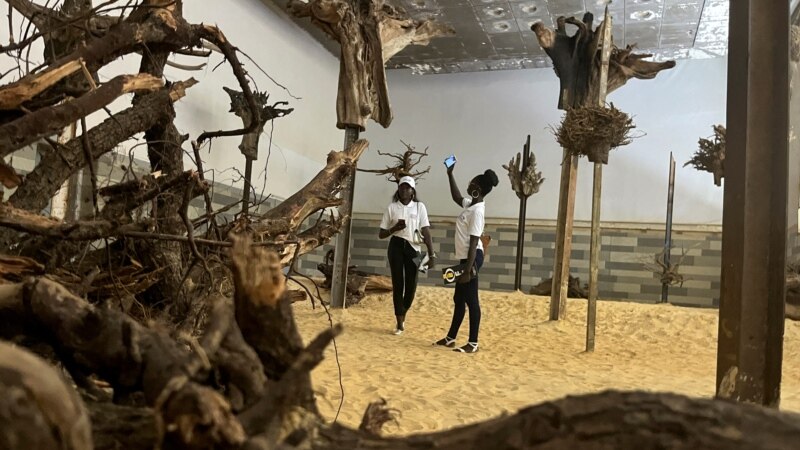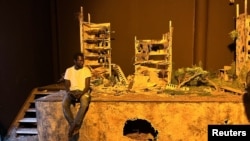This website uses cookies so that we can provide you with the best user experience possible. Cookie information is stored in your browser and performs functions such as recognising you when you return to our website and helping our team to understand which sections of the website you find most interesting and useful.

One of the most prominent events in the world of contemporary African art is kicking off in the Senegalese capital after a four-year absence due to the COVID-19 pandemic. The 14th edition of the Dakar Biennale features the work of hundreds of artists from around the world, ranging from immersive installations to costumed performances.
About 100 spectators gathered on Dakar’s ocean walkway as dancers outfitted in traditional West African costumes gyrated to the sound of djembes. One dancer, dressed as a broomstick, twirled about, while another, donning a mythical lion costume, approached those filming on cellphones to offer a roar. Behind them, a young woman covered in mud held still as an artist covers her in powdered pigments.
The event is one of hundreds set to take place in Dakar over the next month.
The official 2022 biennale selection includes 59 artists from some 30 countries, but hundreds of other spaces, both in Dakar and throughout Senegal, are showcasing art. Even restaurants and hotels have converted their walls into miniature museums.
“The Dakar biennale is unique because it brings together the great majority of audio-visual creators from around the African continent and its diaspora,” said Khalifa Dieng, a scenographer for the National Gallery exhibit. The gallery is hosting works by Senegalese painter El Hadji Sy for the event.
Nigerian painter Tyna Adebowale traveled from her home base in the Netherlands to show her work. She completed an artist residency in Dakar and said she was inspired by the sense of community she found.
“I love the creative vibe of Senegal as a whole,” Adebowale said. “There’s no ego, it’s towards one goal, which is art and culture for the sake of the whole country, the community, the people. I love the collective support that I see. It’s a very beautiful spirit, very vibrant. I really admire it.”
The energy at the festival is perhaps more amplified this year as the 2020 event was postponed due to COVID19, making this the first biennale in four years.
This year’s theme is “Ndaffa,” which means to forge out of the fire in Serer, one of the languages spoken in Senegal.
It refers both to the need to recalibrate as we emerge from the pandemic into a new world, as well as to the history of African creation and its influence on contemporary African art.
Lou Mo is one of four official international curators. Her exhibit, “Havana: Forge of the South,” seeks to link Havana with Dakar via shared themes of migration, race and creolization. Dakar, she said, has become one of Africa’s leading art hubs.
“Both with the biennale that's now 32 years old, to different institutions, different artists,” she said. “And I think there's definitely an international trend of raising the importance of African art. So, I think there's many possibilities for Dakar in the future.”
The event will continue through June 21.



 Africana55 Radio
Africana55 Radio 

